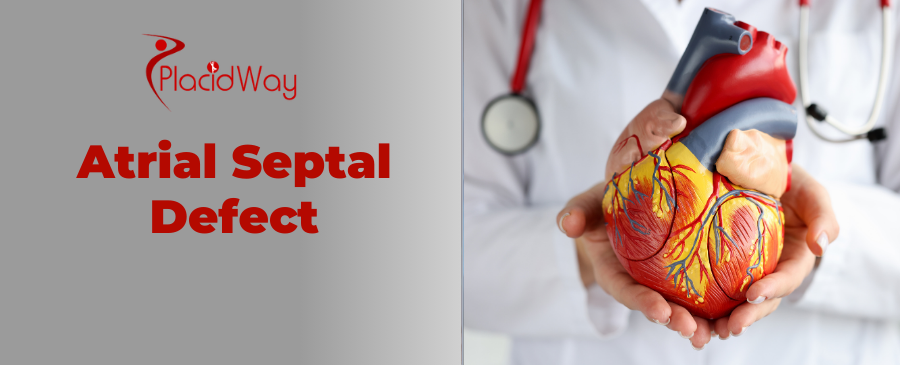
Understanding Atrial Septal Defect: Your Guide to Treatment Abroad
Discovering you or a loved one has an Atrial Septal Defect (ASD) can be concerning. Often described simply as a "hole in the heart," this common congenital heart condition means there's an opening in the wall (septum) separating the heart's upper chambers (atria). While some small ASDs may close on their own or remain asymptomatic throughout life, larger defects can lead to serious health issues if left untreated, impacting your heart's efficiency and overall well-being. Many individuals search for "hole in heart symptoms," "ASD in adults," or "ASD repair options" to understand their condition and explore solutions.
If you're experiencing symptoms like unexplained shortness of breath, unusual fatigue, or notice swelling in your legs, these could be indicators of an ASD. These symptoms arise because the hole allows oxygen-rich blood to flow from the left atrium to the right atrium, mixing with oxygen-poor blood and increasing the workload on the right side of the heart and lungs. Over time, this can lead to complications such as pulmonary hypertension, arrhythmias, or even heart failure.
The good news is that ASD is a treatable condition, and advancements in medical technology offer effective solutions. For many, exploring treatment options abroad presents a compelling opportunity. Medical tourism for ASD closure provides access to world-class cardiac centers, highly skilled surgeons, and often significantly more affordable prices than in their home countries, without compromising on quality of care. This guide will walk you through everything you need to know about ASD, its treatment, and how medical tourism can be a viable, safe, and cost-effective path to better heart health.
What are the common symptoms of Atrial Septal Defect (ASD)?
While small ASDs might not cause any noticeable symptoms, especially in children, larger defects can lead to a range of issues as you age. The body’s ability to compensate for the extra blood flow to the lungs can diminish over time, leading to more pronounced signs. Patients often search for "what are the first signs of ASD?" or "hole in heart symptoms adult."
- Shortness of Breath (Dyspnea): This is one of the most common symptoms, especially during exercise or physical activity. It occurs because the heart has to work harder to pump blood, and the lungs receive increased blood flow.
- Fatigue: Persistent tiredness, even after adequate rest, is another frequent complaint. The heart's inefficiency and extra workload contribute to reduced energy levels.
- Heart Palpitations: You might feel your heart racing, pounding, or skipping beats. This can be due to the altered blood flow patterns and increased strain on the heart, sometimes leading to arrhythmias like atrial fibrillation.
- Swelling (Edema): Swelling in the legs, ankles, or feet can occur as a sign of fluid retention due to the heart's reduced pumping efficiency.
- Frequent Respiratory Infections: Children and adults with ASD may experience more frequent lung infections, such as pneumonia or bronchitis, because of increased blood flow to the lungs.
- Heart Murmur: A doctor might detect an abnormal whooshing sound (murmur) during a routine check-up, indicating turbulent blood flow through the heart.
- Stroke or Transient Ischemic Attack (TIA): In rare cases, a blood clot from the veins can pass through the ASD from the right side to the left side of the heart and travel to the brain, causing a stroke. This is known as a paradoxical embolism.
If you experience any of these symptoms, especially if they worsen over time, it’s crucial to consult a cardiologist for proper diagnosis and evaluation.
What causes an Atrial Septal Defect and who is at risk?
An Atrial Septal Defect is a congenital heart defect, which means it’s a condition you are born with. It develops during fetal growth when the heart's septum (the wall separating the atria) doesn't form completely. Typically, the heart begins to form shortly after conception, and by eight weeks of pregnancy, it should be fully developed. When this development is disrupted, an ASD can occur.
For many individuals, the exact cause of their ASD is unknown, often referred to as sporadic. However, several factors can increase the risk of a baby being born with an ASD:
- Genetics and Family History: ASD can run in families, suggesting a genetic component. If a parent or another close family member has a congenital heart defect, the risk may be higher. Patients often ask, "Is ASD genetic?" and while not always inherited, a predisposition can exist.
- Rubella (German Measles) Infection: If a mother contracts rubella during the first trimester of pregnancy, it can significantly increase the risk of congenital heart defects in the baby.
- Certain Medical Conditions in the Mother: Conditions like poorly controlled diabetes or lupus in the mother can elevate the risk.
- Medication Use During Pregnancy: Some medications, particularly those used for seizures or acne (like isotretinoin), if taken during pregnancy, have been linked to an increased risk of birth defects.
- Alcohol or Drug Use During Pregnancy: Exposure to alcohol or illicit drugs during pregnancy is known to interfere with fetal development, including heart formation.
- Down Syndrome: Children with Down syndrome have a higher incidence of congenital heart defects, including ASDs.
It’s important to remember that most babies born with an ASD have mothers with no identifiable risk factors. Researchers continue to explore the complex interplay of genetics and environmental factors that lead to these conditions.
What are the different types of Atrial Septal Defect and treatment approaches?
ASDs are categorized primarily by their location in the atrial septum. Understanding the type of ASD is crucial for determining the most effective treatment approach:
- Secundum ASD: This is the most common type, located in the middle part of the atrial septum (fossa ovalis). These often appear as an oval-shaped opening. Many small secundum ASDs close spontaneously in childhood.
- Primum ASD: This type is located in the lower part of the atrial septum and is a form of atrioventricular septal defect. It's often associated with other heart anomalies, such as a cleft mitral valve. Primum ASDs rarely close on their own.
- Sinus Venosus ASD: This rarer type is located in the upper part of the atrial septum, near where the superior vena cava enters the right atrium. It's often associated with anomalous pulmonary venous connection, where one or more pulmonary veins drain into the right atrium instead of the left.
- Coronary Sinus ASD: The rarest type, involving a defect in the wall between the coronary sinus and the left atrium.
- Patent Foramen Ovale (PFO): While not strictly an ASD, a PFO is a common variation where the flap-like opening between the atria (normal in fetal circulation) fails to close completely after birth. It's usually small and asymptomatic but can be linked to stroke or migraines in some cases.
Treatment approaches vary based on the ASD's type, size, and whether it causes symptoms:
- Watchful Waiting: For very small, asymptomatic ASDs, especially in children, doctors may recommend monitoring to see if it closes on its own.
- Transcatheter Device Closure: This is a minimally invasive procedure, primarily used for secundum ASDs. A thin, flexible tube (catheter) is inserted into a vein (usually in the groin) and guided to the heart. A device, often an umbrella-like patch, is then deployed to close the hole. This procedure avoids open-heart surgery, involves a shorter hospital stay, and faster recovery.
- Surgical Closure (Open-Heart Surgery): For larger ASDs, primum, sinus venosus ASDs, or those associated with other heart defects, open-heart surgery is often required. The surgeon makes an incision in the chest, and the heart is temporarily stopped while a patch (made of synthetic material or the patient's own pericardial tissue) is sewn over the hole.
Your cardiologist will recommend the most suitable treatment based on a comprehensive evaluation.
Am I eligible for Atrial Septal Defect closure surgery or treatment?
Determining eligibility for ASD closure is a crucial step that involves a thorough medical evaluation by a cardiologist. The decision is made based on several factors to ensure the best possible outcome for the patient. Key considerations include:
- Size and Type of ASD: Generally, larger ASDs that cause a significant shunt (blood flow from left to right atrium) are considered for closure. Secundum ASDs are often suitable for transcatheter device closure, while primum or sinus venosus ASDs typically require surgical repair. Small ASDs that are not causing symptoms or heart enlargement may not require intervention.
- Presence of Symptoms: If you are experiencing symptoms such as shortness of breath, fatigue, recurrent lung infections, or heart palpitations, closure is more likely to be recommended, even for moderate-sized defects.
- Heart Size and Function: An enlarged right atrium and/or right ventricle due to the increased blood flow through the ASD is often an indication for closure, as it suggests the heart is under strain.
- Pulmonary Hypertension: This is a critical factor. If the ASD has led to significant pulmonary hypertension (high blood pressure in the lung arteries), particularly if it's irreversible (Eisenmenger syndrome), closure might be contraindicated as it could worsen the condition. However, if pulmonary hypertension is reversible, closure may be beneficial.
- Overall Health: Your general health, including any other existing medical conditions (like kidney disease, diabetes, or other heart problems), will be assessed to determine your fitness for either transcatheter or surgical procedures.
- Age: While ASD closure can be performed at any age, it is generally recommended in childhood or early adulthood to prevent long-term complications. However, many adults successfully undergo closure.
A comprehensive evaluation typically includes an echocardiogram (ultrasound of the heart), electrocardiogram (ECG), chest X-ray, and sometimes a cardiac MRI or CT scan. Your medical team will discuss the risks and benefits to help you make an informed decision.
What is the typical recovery time after ASD closure?
The recovery time for Atrial Septal Defect closure largely depends on the type of procedure performed:
Recovery After Transcatheter Device Closure (Minimally Invasive)
This procedure typically offers a much faster recovery due to its less invasive nature. Patients often search for "How long is recovery after ASD repair (device)?"
- Hospital Stay: Usually 1-2 days.
- Initial Recovery (First Week): You might feel some discomfort at the catheter insertion site (usually the groin), but pain is generally mild and managed with over-the-counter medication. Light activities can usually be resumed within a few days. Strenuous activities, heavy lifting, and intense exercise should be avoided for 1-2 weeks to allow the insertion site to heal.
- Full Recovery: Most patients feel back to their normal energy levels within 2-4 weeks. Follow-up appointments, including echocardiograms, will be scheduled to ensure the device is in place and the heart is functioning well. Antibiotics may be prescribed for several months to prevent infection around the device.
Recovery After Surgical Closure (Open-Heart Surgery)
This is a more extensive procedure and requires a longer recovery period.
- Hospital Stay: Typically 4-7 days, including time in the intensive care unit (ICU) initially.
- Initial Recovery (First 2-4 Weeks): You will experience pain and discomfort around the chest incision, managed with prescribed pain medication. Activity will be significantly restricted, including lifting, pushing, or pulling anything heavier than a few pounds. You'll be encouraged to walk short distances.
- Cardiac Rehabilitation: Many patients benefit from a cardiac rehabilitation program, which includes supervised exercise and education, to help regain strength and stamina safely.
- Full Recovery: It generally takes 4-6 weeks to resume most normal activities, and 2-3 months for the chest bone (sternum) to fully heal and for full energy levels to return. You will have follow-up appointments with your cardiologist, and a full return to strenuous activities, like competitive sports, will be gradually approved by your doctor.
Regardless of the procedure type, it’s essential to follow your surgeon’s post-operative instructions carefully, attend all follow-up appointments, and report any concerning symptoms immediately.
What are the potential risks and side effects of ASD repair?
Like any medical procedure, ASD closure, whether surgical or transcatheter, carries potential risks and side effects. While serious complications are rare, it's important to be aware of them. Your medical team will explain these risks in detail and take precautions to minimize them.
Risks Associated with Transcatheter Device Closure:
- Device Embolization/Dislodgement: The closure device may shift from its intended position and travel to another part of the heart or blood vessels, requiring retrieval or repositioning.
- Device Erosion: Rarely, the device can erode through the heart wall, though modern devices have made this very uncommon.
- Cardiac Arrhythmias: Temporary or persistent abnormal heart rhythms can occur.
- Bleeding or Bruising: At the catheter insertion site (usually the groin).
- Allergic Reaction: To contrast dye used during the procedure.
- Infection: Though rare, an infection can occur at the insertion site or around the device (endocarditis).
- Perforation of the Heart or Blood Vessel: A rare but serious complication during catheter insertion.
- Residual Shunt: A small amount of blood may still pass through the defect if the device doesn't fully seal the hole.
- Stroke: A very rare complication due to a blood clot forming during the procedure.
Risks Associated with Surgical Closure:
- Bleeding: During or after surgery.
- Infection: Of the surgical incision or inside the chest.
- Adverse Reaction to Anesthesia: Nausea, vomiting, or more serious complications.
- Arrhythmias: Post-operative heart rhythm disturbances are common, often temporary.
- Stroke or Heart Attack: Rare but serious complications.
- Damage to Surrounding Structures: Such as blood vessels or nerves.
- Pneumonia or Lung Complications: Due to prolonged immobility or intubation.
- Fluid Buildup: Around the heart or lungs.
- Residual Shunt: If the patch does not fully seal the defect.
Your healthcare team will thoroughly assess your individual risk factors and discuss the most appropriate and safest treatment plan for you.
Worldwide Cost Comparison: How much does ASD closure cost?
The cost of Atrial Septal Defect closure can vary dramatically depending on the country, the type of procedure (transcatheter vs. surgical), the complexity of the case, the hospital's prestige, and what's included in the package (e.g., hospital stay, surgeon fees, diagnostics, follow-up). Medical tourism offers a compelling alternative for those seeking affordable yet high-quality care.
Here's a general cost comparison (estimates in USD):
| Country | Estimated Cost (USD) - Transcatheter | Estimated Cost (USD) - Surgical | Notes |
|---|---|---|---|
| United States | $35,000 - $60,000+ | $60,000 - $100,000+ | Highest costs, often covered by insurance but high deductibles/out-of-pocket for uninsured. |
| United Kingdom | $30,000 - $50,000 | $50,000 - $80,000 | NHS covers for residents; private care is costly. |
| India | $8,000 - $15,000 | $10,000 - $20,000 | Highly competitive, world-class hospitals, experienced surgeons. |
| Turkey | $10,000 - $18,000 | $12,000 - $25,000 | Modern facilities, skilled doctors, growing medical tourism hub. |
| Mexico | $9,000 - $16,000 | $11,000 - $22,000 | Convenient for US patients, good quality care in major cities. |
| Thailand | $10,000 - $17,000 | $12,000 - $23,000 | Excellent patient experience, JCI-accredited hospitals. |
These prices are estimates and can change. It's essential to get a personalized quote that includes all aspects of your treatment, including pre-operative tests, surgeon fees, hospital stay, anesthesia, device costs (if applicable), and post-operative care.
Why consider Atrial Septal Defect treatment abroad?
The decision to travel abroad for medical treatment is a significant one, but for ASD closure, it offers several compelling advantages:
- Significant Cost Savings: As seen in the cost comparison, procedures can be 50-70% less expensive in popular medical tourism destinations compared to Western countries, making life-saving treatment accessible to more people.
- Access to Advanced Technology and Expertise: Many international hospitals are equipped with state-of-the-art technology and employ highly skilled surgeons who are often trained in the West and have extensive experience with complex cardiac procedures.
- Reduced Waiting Times: In some countries, public healthcare systems have long waiting lists for non-emergency procedures. Traveling abroad can mean faster access to treatment, preventing potential complications from delayed intervention.
- High-Quality Care and International Accreditation: Many clinics and hospitals catering to international patients hold international accreditations (like JCI – Joint Commission International), ensuring they meet stringent global standards for patient safety and quality of care.
- Privacy and Anonymity: Some patients prefer the discretion and privacy offered by receiving treatment away from their home country.
- Comprehensive Packages: Medical tourism providers often offer all-inclusive packages that cover not only the medical procedure but also accommodation, airport transfers, and interpreter services, simplifying the entire process.
For many, medical tourism isn't just about saving money; it's about gaining access to high-quality, timely care that might otherwise be out of reach.
Which countries offer the best value for ASD treatment abroad?
When considering medical tourism for ASD closure, several countries consistently stand out for their combination of high-quality care, experienced specialists, and competitive pricing:
- India: Renowned for its large volume of highly complex cardiac surgeries, India boasts numerous JCI-accredited hospitals with state-of-the-art infrastructure. Indian cardiologists are often internationally trained and very experienced. The cost-effectiveness here is exceptional, with comprehensive packages significantly lower than in Western nations.
- Turkey: Positioned as a bridge between Europe and Asia, Turkey has rapidly emerged as a medical tourism leader. It offers modern, well-equipped hospitals adhering to European standards, often with English-speaking staff. Turkish surgeons are highly skilled, and the country provides excellent value for money.
- Mexico: Especially popular for North American patients due to its proximity, Mexico provides high-quality medical care at a fraction of the cost. Major cities like Mexico City, Guadalajara, and Tijuana have reputable hospitals with experienced cardiac teams.
- Thailand: Known for its warm hospitality and excellent service, Thailand offers world-class medical facilities, particularly in Bangkok. Many Thai hospitals are JCI-accredited and specialize in catering to international patients, offering a seamless and comfortable experience.
- South Korea: While potentially slightly pricier than other Asian options, South Korea is a leader in medical technology and research. Its hospitals are at the forefront of medical innovation, providing highly advanced and precise cardiac care with excellent outcomes.
When selecting a country and clinic, always research accreditations, surgeon credentials, patient reviews, and the comprehensiveness of the treatment package.
What to expect when traveling abroad for ASD treatment?
Traveling for medical treatment might seem daunting, but with proper planning and the support of medical tourism facilitators like PlacidWay, the process can be smooth and stress-free. Here’s a general outline of what to expect:
- Initial Inquiry & Consultation: You'll start by contacting a medical tourism platform or specific clinics. You’ll need to provide your medical records, diagnostic reports (like echocardiograms), and a brief medical history. Many clinics offer virtual consultations with a cardiologist to discuss your case, assess eligibility, and provide a preliminary treatment plan and cost estimate.
- Personalized Quote & Treatment Plan: Based on your medical information, you'll receive a detailed quote outlining the procedure, hospital stay, surgeon fees, and what's included. A tailored treatment plan will also be provided.
- Travel Arrangements: Once you accept the plan, you'll arrange travel. This includes booking flights, securing a visa (if required), and planning accommodation for your stay, which often needs to be longer than just the hospital stay for recovery. Many facilitators assist with these logistics.
- Arrival and Pre-Operative Assessments: Upon arrival in the destination country, you'll be met (often by a hospital representative or facilitator) and transferred to your accommodation or directly to the hospital. You'll undergo comprehensive pre-operative tests, consultations with your cardiac team, and a thorough physical examination to confirm the diagnosis and finalize the treatment plan.
- The Procedure and Hospital Stay: You'll undergo the ASD closure procedure. Following the procedure, you'll have a hospital stay for recovery and monitoring, the duration of which depends on whether it was transcatheter or surgical closure.
- Post-Operative Recovery and Follow-up: After discharge from the hospital, you'll typically remain in the country for a period of outpatient recovery, follow-up appointments, and device checks (for transcatheter closure). This ensures you are stable and ready to travel home.
- Return Home: Once your medical team clears you for travel, you can return home with instructions for continued recovery and any necessary ongoing care.
Working with an experienced medical tourism provider simplifies this process, handling many of the logistical details and providing support throughout your journey.
How to ensure safety and quality for ASD closure abroad?
Ensuring safety and quality is paramount when seeking medical treatment abroad. While many international facilities offer excellent care, due diligence is key. Here's how to ensure you receive the best possible care for your ASD closure:
- Choose Internationally Accredited Hospitals: Look for hospitals with international accreditations such as Joint Commission International (JCI), ISO, or other reputable global healthcare quality organizations. These accreditations signify adherence to high standards of patient care and safety.
- Verify Surgeon Credentials and Experience: Research your surgeon's qualifications. Look for board certifications, extensive experience in cardiac surgery or interventional cardiology, specialization in congenital heart defects, and the volume of ASD procedures they perform annually. Don't hesitate to ask for their CV or success rates.
- Read Patient Testimonials and Reviews: Seek out genuine patient reviews and success stories. Websites like PlacidWay often feature patient experiences that can provide valuable insights into the quality of care and patient satisfaction at different facilities.
- Utilize Reputable Medical Tourism Facilitators: Companies like PlacidWay partner with vetted hospitals and clinics, acting as an intermediary to ensure quality and safety. They can help you identify reputable providers, manage logistics, and offer support throughout your journey.
- Ensure Clear Communication: Confirm that the medical team and support staff can communicate effectively in your language. Access to qualified medical interpreters is essential for clear understanding of your condition, treatment, and post-operative care.
- Understand the Full Cost: Get a detailed, itemized quote to avoid hidden fees. Ensure it covers all aspects, from diagnostics to post-operative care and follow-up.
- Plan for Post-Operative Care: Discuss follow-up care plans, including how medical records will be transferred and if remote consultations are available once you return home.
- Travel Insurance: Consider purchasing travel insurance that includes medical evacuation or complications coverage, just in case.
By taking these steps, you can significantly enhance your safety and confidence in choosing ASD treatment abroad.
What are patient success stories from abroad for Atrial Septal Defect repair?
The landscape of medical tourism is filled with inspiring success stories from individuals who have traveled abroad for Atrial Septal Defect repair. These narratives often highlight not just the successful closure of the "hole in the heart" but also a transformative experience that improved their quality of life.
- Improved Energy Levels: Many patients, who previously suffered from chronic fatigue and shortness of breath, report a dramatic increase in their energy levels post-procedure. They describe being able to engage in activities they once found exhausting, from simple walks to playing with grandchildren, without discomfort.
- Resolution of Symptoms: Symptoms like heart palpitations, recurrent lung infections, and exercise intolerance often resolve or significantly diminish after successful ASD closure. Patients recount the relief of no longer feeling their heart "flutter" or struggling to catch their breath.
- Access to Timely Care: For patients from countries with long waiting lists, the ability to receive prompt treatment abroad means avoiding potential complications that could arise from delayed intervention. This timeliness is often cited as a key factor in their positive outcome.
- Exceptional Patient Experience: Beyond the medical results, many patients praise the holistic experience abroad. They frequently mention the attentiveness of the medical staff, the modern facilities, the clear communication provided by interpreters, and the overall comfort and care received, which often exceeds their expectations.
- Financial Relief: The significant cost savings achieved through medical tourism allows patients to access life-changing procedures that might have been financially impossible in their home countries. This financial relief, combined with excellent medical outcomes, offers immense peace of mind.
- Return to Normal Life: Ultimately, the goal of ASD repair is to allow patients to live a full, healthy life without the burden of their heart condition. Success stories often culminate in patients returning home, not just with a healthier heart, but with a renewed sense of vitality and optimism for the future.
These stories underscore the value and effectiveness of international medical travel for ASD treatment, demonstrating that quality care and positive outcomes are achievable globally.
Take the Next Step with PlacidWay
Ready to explore treatment options abroad? Discover top clinics, compare prices, and get a free quote tailored to your needs with PlacidWay.
Heart Surgery Abroad, Cardiac Care Abroad



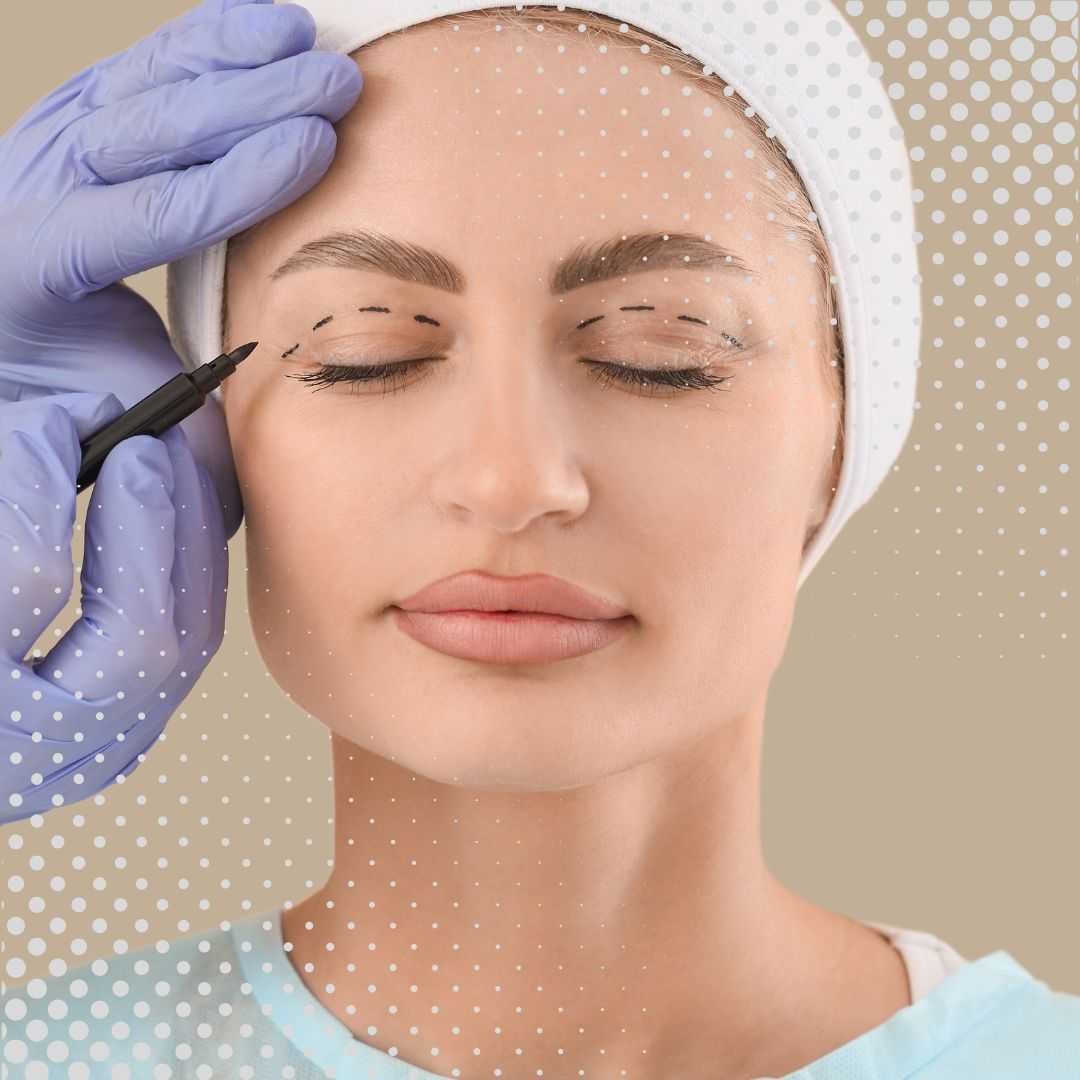

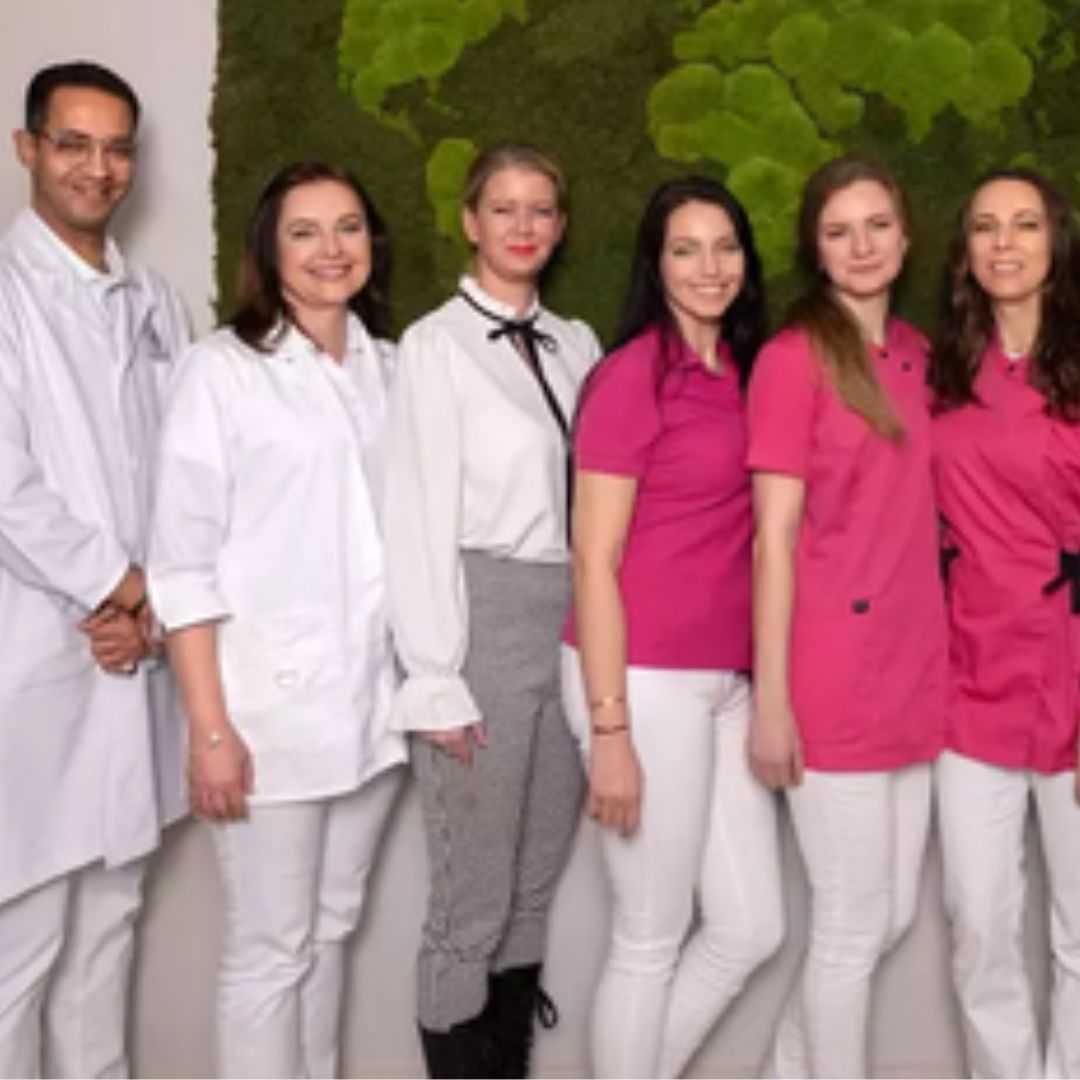

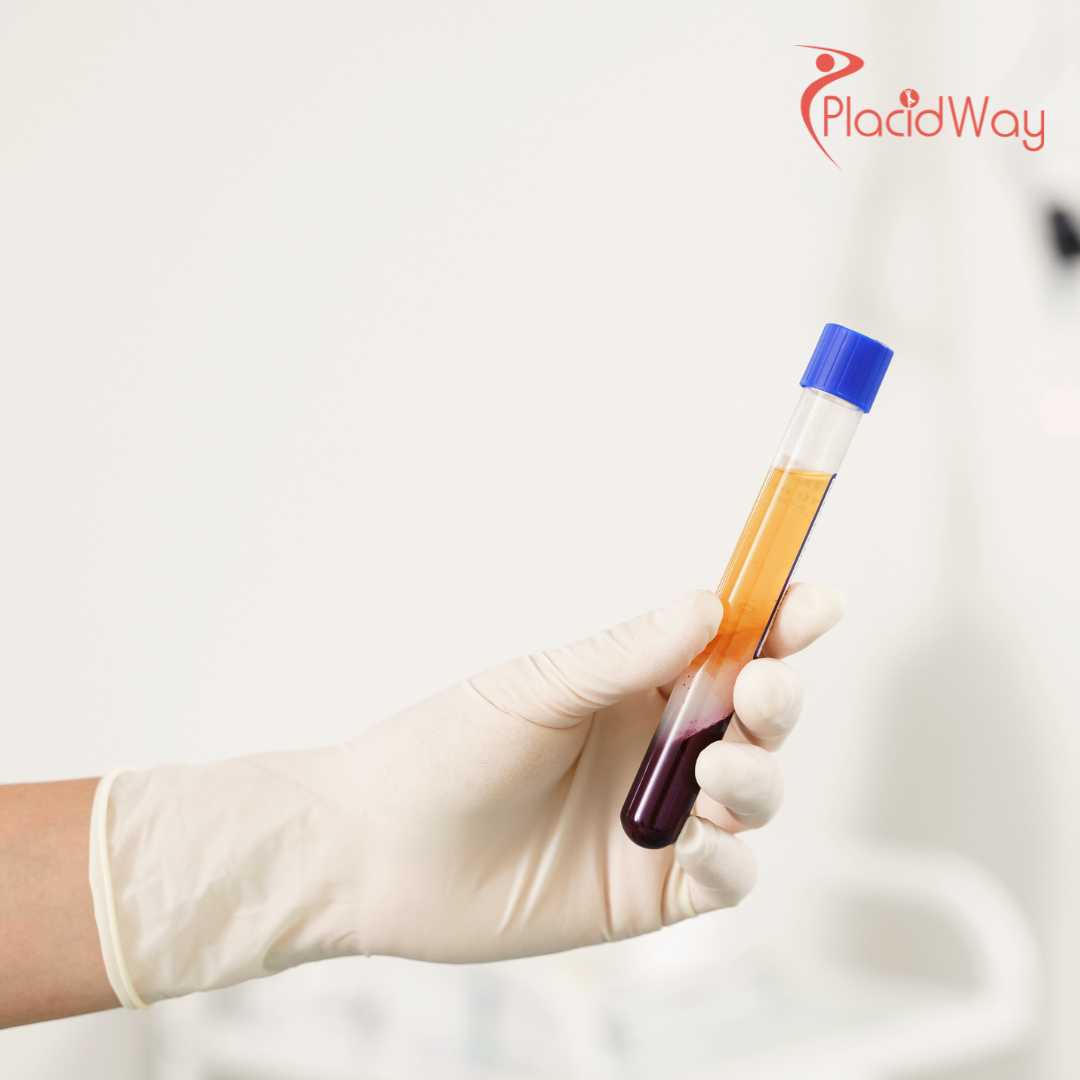
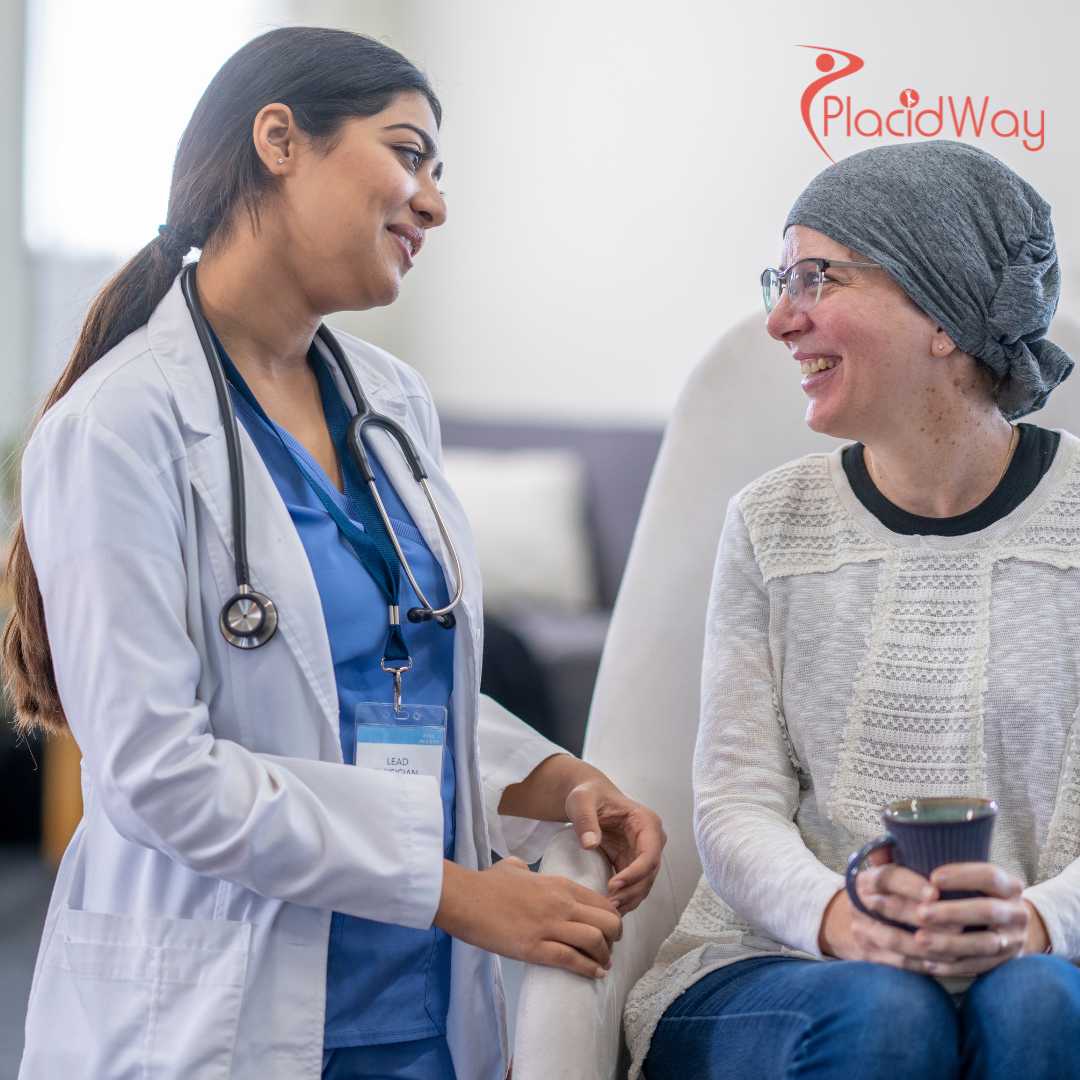

Share this listing